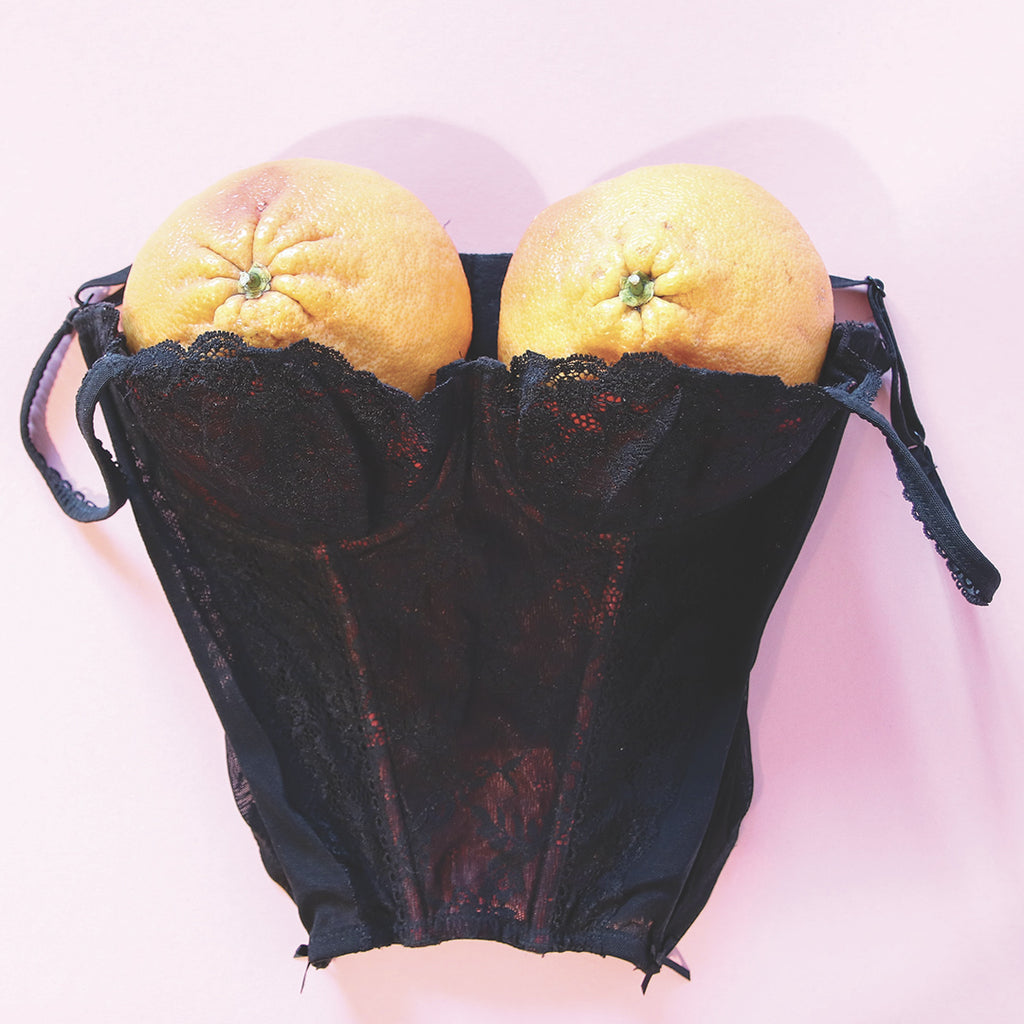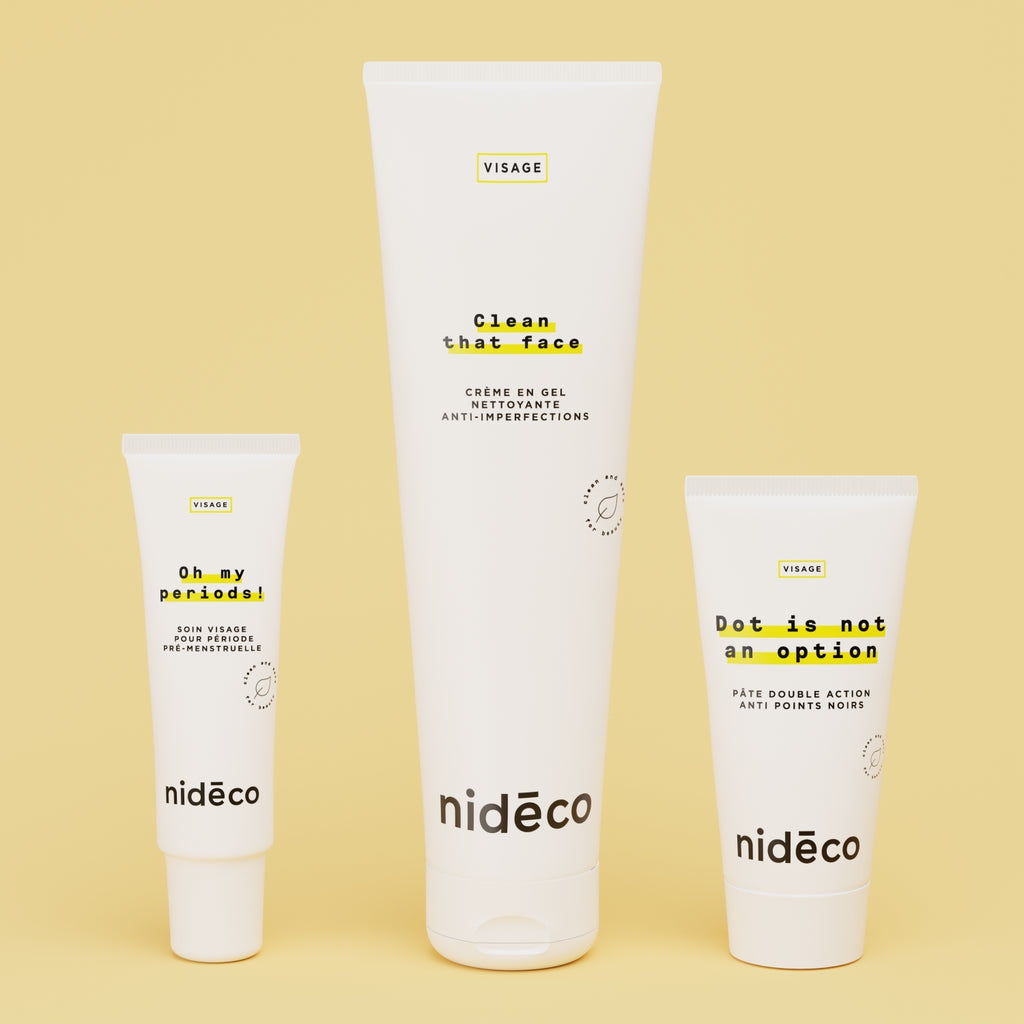Why do I have sensitive nipples and breasts?

👉 Breast and nipple tenderness is a common phenomenon that occurs at different times in life, notably during the premenstrual period, pregnancy or even menopause. These hormonal variations have a direct influence on the breasts, and it's essential to understand why and how this happens in order to cope better.
Anatomy of the breast and origin of sensitivity
To understand breast and nipple sensitivity, it's first worth recalling the structure of the breast. The breast is mainly made up of glandular and fatty tissue, surrounded by connective tissue which provides support. The mammary glands, responsible for milk production, are connected to the nipples via a network of ducts. This complex system is subject to the influence of hormones, which explains the variations in sensitivity throughout a woman's life.
🧐 The breast is also highly vascularized, which means that a large quantity of blood circulates in this area, contributing to its sensitivity. Nerve receptors in the nipples and breast tissue are particularly reactive to hormonal changes.
Menstrual cycle and breast sensitivity
❤️ The menstrual cycle has a major influence on breast and nipple sensitivity. Increased hormones, notably estrogen and progesterone, modify breast texture and sensitivity at different stages of the cycle.
1. The pre-ovulatory phase
During the first phase of the cycle, i.e. before ovulation, estrogen levels rise. This hormone stimulates the growth of milk ducts in the breasts, which may cause a slight feeling of tension or discomfort in the chest. At this stage, nipple sensitivity may also be heightened, although this varies from woman to woman.
2. The luteal phase (after ovulation)
After ovulation, progesterone takes over. This hormone prepares the body for a possible pregnancy by stimulating the proliferation of mammary cells. Mammary alveoli, responsible for milk production, multiply, which can lead to breast swelling and increased sensitivity. This is often the period when women experience the most pain or discomfort in their breasts.
😵💫 Breast pain associated with the menstrual cycle (known as cyclic mastalgia) is often bilateral, affecting both breasts. Pain usually appears a week before menstruation and disappears as progesterone levels fall, just before or during menstruation.
To better understand the subject, we invite you to visit this article.
Pregnancy and heightened sensitivity
Tender breasts can also be an early sign of pregnancy. During the first trimester, estrogen and progesterone levels rise dramatically to support fetal development. This leads to an increase in breast size and more sensitive nipples. Some women may also notice darkening of the areolas and increased visibility of veins on the breast surface due to increased blood flow.
🤰🏼 Breast sensitivity during pregnancy is often more diffuse and persistent than during the menstrual cycle. Breasts may feel heavier, swollen and painful. Tingling or itching may also occur as the skin stretches to accommodate the increased breast volume.
After childbirth: lactation and pain
After childbirth, milk production can cause the breasts to swell considerably, feeling hot and sometimes painful. This is due to the influx of blood and lymph necessary for milk production. As the milk ducts fill with milk, the breasts become harder and more sensitive. Pain can be exacerbated by breastfeeding problems, such as poor positioning of the baby or milk stagnation in the ducts, which can lead to engorgement or mastitis (inflammation of the breasts).
Other causes of breast tenderness
👉 In addition to the menstrual cycle and pregnancy, several other factors can influence breast and nipple sensitivity:
- Breast size Breast size: Women with large breasts may experience pain due to the weight of their breasts, which can lead to tension in the breast tissue and back. The right bra is essential to relieve this type of pain.
- Menopause Menopause: During this period, hormonal changes, particularly the drop in estrogen, can also cause increased sensitivity or pain in the breasts. This can be particularly confusing for some women, who usually associate breast tenderness with youth or fertility.
- Breast cysts and nodules Although often benign, cysts and nodules can also cause localized pain in the chest. It's important to watch out for any unusual lumps in the breasts, and to consult a doctor if necessary.
- Trauma or shock A blow or shock to the chest may cause temporary sensitivity of the breasts and nipples, even in the absence of visible lesions.
- Medications Certain hormonal treatments or medications, such as oral contraceptives or hormone replacement therapy, can also cause changes in breast sensitivity.
How can I relieve sore breasts?
👉 There are several methods to relieve breast and nipple tenderness, including:
- Choosing the right bra A well-fitting bra can make all the difference. For some, going bra-less may even be more comfortable. It's important to find what works best for you.
- Avoid caffeine Caffeine can have a vasoconstrictive effect, constricting blood vessels and aggravating breast pain. Reducing your intake of coffee, tea and energy drinks can help alleviate symptoms.
- Moisturize and massage your breasts Regular moisturizing and gentle massage of the breasts stimulate blood and lymph circulation. This can reduce tension and improve skin elasticity.
Tits Party: Care to relieve breast sensitivity
😍 To help relieve breast pain and tenderness, Dina has designed Tits Partya treatment specially formulated to soothe, tone and repair the breasts. This product was co-created with 4,000 women, a testament to its effectiveness and relevance to real needs.
Tits Party offers refreshing action for immediate pain relief. Its melting texture leaves the skin soft and velvety after application, offering a truly relaxing moment. It can be used as a massage or mask to prolong the soothing effect.
This treatment is particularly recommended for those who suffer from sensitive breasts during the premenstrual period, or for any woman seeking to take care of her breasts on a daily basis.
Conclusion
Breast and nipple tenderness is a normal reaction to various hormonal changes in a woman's life, whether during the menstrual cycle, pregnancy or menopause. It's essential to understand these mechanisms to better manage the discomfort they cause. Appropriate care, such as Tits Partycan go a long way to alleviating this discomfort, while providing a care routine tailored to your breasts.




























